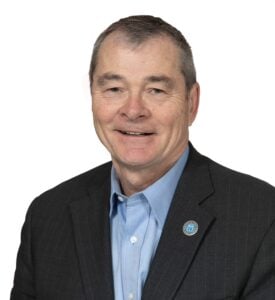Advanced Rate Design
Tools for Optimizing Resource Utilization
December 5-6, 2023 | Denver, CO :: Mountain Time
“EUCI programs, speakers and content are consistently on point with industry developments and a valuable knowledge and shared experience resource.” – Policy Advisor, Public Utility Commission of Nevada
“This conference was informative and helpful in bringing together members of different backgrounds within the industry to share their observations and findings as it related to the changing environment in which utilities operate. The event length was also just right!” – Staff Rates Analyst, PSEG
As we continue to address the pressing challenges of the transition to a sustainable energy system, advanced rate designs have emerged as a pivotal tool in promoting clean energy adoption, optimizing resource utilization, and ensuring equitable and affordable access to electricity. This conference aims to delve into the latest advancements, best practices, and policy frameworks related to rate design for a decarbonized energy landscape.
Together with the brightest leaders in the industry, we will explore groundbreaking approaches to rate design that incentivize energy conservation, distributed energy resources (DERs) integration, and the adoption of renewable energy technologies and discover how dynamic pricing, time-of-use rates, and demand response programs can shape consumer behavior and foster a sustainable energy culture. Join us to examine the role of rate design in supporting the integration of renewable energy recourses, electrification of transportation, and energy storage.
Learning Outcomes
- Compare rate design best practices from multiple utility and industry experts
- Explore best practices on how to incentivize and support integration of renewables to rate design
- Examine new strategies for rate design to promote grid sustainability
- Study how PBR can improve operational efficiency
- Review updated cost-effective measures and innovative solutions in PBR
- Compare innovative pricing mechanisms that reward energy consumers
- Hear how EV adoption and beneficial electrification causes stakeholders to view utility pricing and cost-recovery issues differently
- Review the latest regulatory frameworks and policies that aim to incentivize and support the integration of renewable energy
- Identify how regulators and utilities are working to encourage the electrification of transportation
- Review cost-effective measures and innovative solutions for performance-based rates
- Estimate tariffs structures for carbo-free future
- Discuss fixed cost recovery and load variability
- Assess the implications of changing resources minimize on time-of-use pricing (Salt River Project case study)
- Discuss how the revenue can be matched with the costs using TOU and seasonally differentiated rates
- Access initial reporting on revenue decoupling from Minnesota PUC
- Address issues in designing rate structures for unique circumstances of low-income customers
Tuesday, December 5, 2023 : Mountain Time
8:00 – 8:45 a.m.
Registration & Continental Breakfast/Online Login
11:45 a.m. – 12:45 p.m.
Lunch Break
8:45 a.m. – 5:00 p.m.
Conference Timing
8:45 – 9:00 a.m. :: Welcome Announcements & Opening Address
Dan Hansen, VP, Christensen Associates Energy Consulting
9:00 – 9:45 a.m. :: Emerging Regulatory Models and Rate Designs for Decarbonization
Through a case study of North Carolina’s recent regulatory efforts to implement a Carbon Plan and PBR, explore cutting-edge regulatory frameworks and policies that incentivize and support the integration of renewable energy resources, electrification of transportation, energy storage, other innovative technologies, customer programs, and rate designs.
Bo Somers, Managing Director, Regulatory Restructuring and Modernization, Duke Energy
9:45 – 10:30 a.m. :: Why Annual Performance-Based Rates Make Sense
PBR rates provide utilities incentives to improve operational efficiency, enhance performance, and encourage utilities to focus on cost-effective measures and innovative solutions. These rates can align utility incentives with broader policy objectives such as decarbonization and energy conservation. PBR rates provide a flexible mechanism to adapt and align with evolving policy priorities.
We will discuss how to ensure that utilities operate within defined cost parameters. This helps prevent excessive cost pass-through to customers and promotes rate stability over the long term.
Mark Lowry, President, Pacific Economics Group Research
10:30 – 11:00 a.m. :: Networking Break
11:00 – 11:45 a.m. :: Optimizing Tariffs For a Net Zero Carbon Future: a Focus on Utilities
Traditional utility rate structures often fail to adequately reflect the true costs and benefits associated with different energy sources. This discrepancy inhibits the adoption of clean energy solutions, as they often face higher upfront costs or lack price competitiveness compared to conventional fossil fuel-based alternatives.
This session will address these barriers by introducing innovative pricing mechanisms that reward consumers for embracing cleaner and more efficient energy options.
John Cogburn, Director-Rates, Tariffs and Regulatory Planning, Southern Company
11:45 – 12:45 p.m. :: Group Luncheon
12:45 – 1:30 p.m. :: Case Study: Adapting Time-of-Use Pricing: Exploring the Effects of Shifting Resource Mixes on Rate Design
What are the implications of changing resource mixes on time-of-use pricing? Time-of-Use programs at Salt River Project (SRP) were designed for the traditional grid with late afternoon peaks. But increasingly large amounts of solar resources are changing the cost profiles of the grid—pushing the net peaks to later in the evening and decreasing costs in the middle of the day. SRP has found that by the latter half of the 2020s, existing TOU programs will send the wrong price signals and may cause increases in capacity costs. Therefore, SRP is piloting the Daytime Saver Pilot Price Plan, designed to help customers take advantage of abundant low-cost solar resources during daytime hours. The pilot includes a low super off-peak price from 9 a.m. until 3 p.m. every day of the year, in addition to later on-peak hours from 6 p.m. to 9 p.m. during summer weekdays only.
In this session, hear how the pilot rate has changed participant’s load profiles as well as customer satisfaction and lessons learned.
Mark Carroll, Principal Financial Analyst, Salt River Project
1:30 – 2:15 p.m. :: Xcel Energy Case Study
Steve Wishart, Director of Pricing & Regulatory Analytics, Xcel Energy
2:15 – 2:45 p.m. :: Networking Break
2:45 – 3:45 p.m. :: Case Study: The Impact of Electrification Measures on Costs and Rates
This session will cover current cost structures, estimate future cost structure, and discuss the cost impact of EV Charging, Net Energy Metering, rooftop solar, etc. We will discuss why three-part rates (which include demand charges) are essential and how CORE could match the revenue collected from members with the cooperative’s costs using TOU and seasonally differentiated rate structures.
David Stowe, Senior Rates Engineer, CORE Electric Cooperative
3:45 – 4:45 p.m. :: Case Study: Revenue Decoupling and Clean Energy Future Program
Otter Tail Power was ordered by the Minnesota PUC to study an intervenor group’s proposal concerning the applicability of a decoupling mechanism to all customers except those on market-based rates.
This case study describes the background of that evaluation and how the results led to the proposal accepted in docket EO17-GR-20-719. The case study includes initial reporting period results and Minnesota PUC feedback on the first reporting period.
Brian Boss, Pricing Analyst, Otter Tail
4:45 – 5:00 p.m. :: Q&A
Wednesday, December 6, 2023 : Mountain Time
8:00 – 8:45 a.m.
Continental Breakfast and Sign In/Login
8:45 a.m. – 12:00 p.m.
Conference Timing
8:45 – 9:00 a.m. :: Welcome Message
Dan Hansen, VP, Christensen Associates Energy Consulting
9:00 – 10:00 a.m. :: The Changing Marketplace: TOU, Grid Access Charges and Commercial Rates for EV Charging
- TOU rates are designed to incentivize EV owners to charge their vehicles during off-peak hours. TOU rates also align with renewable energy generation patterns, allowing EVs to be charged when there is an abundance of clean energy available
- Grid Access Charges help utilities recover the costs associated with upgrading and maintaining the grid to accommodate the increased demand from EVs
- Commercial Rates for EV Charging encourage businesses to invest in and expand the availability of charging stations, meeting the needs of EV drivers and contributing to the overall development of the EV market
This session will discuss the challenges with EV charging, battery assessment, EV values, 2nd life battery usage and other emerging issues in the industry.
Tim Echols, Georgia Public Service Commission, Chairman
10:00 – 10:30 a.m. :: Networking Break
10:30 a.m. – 12:00 p.m. :: Panel Discussion: Social Equity Considerations in Rate Design/Low-Income Rate Design/Low-Income Discount Frameworks
This discussion will revolve around designing rate structures that consider the unique circumstances of low-income customers, such as income volatility, energy usage patterns, and limited access to energy efficiency measures.
Moderator: Dan Hansen, VP, Christensen Associates Energy Consulting
Conitsha Barnes, State Energy Policy Director, Duke Energy
Tim Echols, Chairman, Georgia Public Service Commission
Mark Carroll, Principal Financial Analyst, Salt River Project
John Cogburn, Director-Rates, Tariffs and Regulatory Planning, Southern Company
Brian Boss, Pricing Analyst, Otter Tail
Corey Singletary, Director, Regulatory Affairs, Citizens Utility Board of Wisconsin
Exploring Electric Vehicle (EV) Charging Rate Designs
Wednesday, December 6, 2023 : Mountain Time
The Exploring Electric Vehicle (EV) Charging Rate Designs workshop is a comprehensive session designed to provide participants with a deep understanding of the various aspects involved in designing charging rates for electric vehicles. As the world transitions towards sustainable transportation, it is crucial to establish effective and efficient charging infrastructure, which includes determining optimal charging rates.
Learning Outcomes/Agenda
12:00 – 12:30 p.m.
Registration / Log In
12:30 – 2:30 p.m.
Workshop Timing
- Review the importance of charging rate design for electric vehicles in fostering widespread adoption and supporting EV charging networks
- Explore the factors that influence EV charging rates, including battery technology, grid capacity, and user requirements
- Review different charging rate options and their implications for charging time, battery life, and overall grid stability
- Examine case studies and real-world examples of successful charging rate designs implemented by industry leaders
- Discuss the challenges and opportunities associated with implementing different charging rate designs
- Gain insights into future trends and advancements in EV charging rate designs
Workshop Instructors
 Tim Echols serves on the Georgia Public Service Commission and has been regulating energy for the Peach State since 2011. He has owned six electric vehicles, has solar on his home, and is an evangelist for electric mobility. He has 3 degrees from the University of Georgia and he and his wife have been married 40 years and have seven children.
Tim Echols serves on the Georgia Public Service Commission and has been regulating energy for the Peach State since 2011. He has owned six electric vehicles, has solar on his home, and is an evangelist for electric mobility. He has 3 degrees from the University of Georgia and he and his wife have been married 40 years and have seven children.

Eric Blank was appointed Chairman of the Colorado Public Utilities Commission on December 11, 2020, by Governor Jared Polis for a four-year term effective January 12, 2021. His term expires in January of 2025.
Blank, a lawyer and economist from Boulder, has worked on electric utility and clean energy issues for over 35 years in a diverse range of entrepreneurial, business, and non-profit settings.
In 2000, Blank co-founded a pioneering national renewable energy development company, which he ran until three years ago. Blank helped commercialize first wind and then later solar technologies by building some of the earliest and largest clean energy projects outside of California. All told, he has developed 2,000 MW of operating wind and solar projects, representing $4 billion in invested capital.
Blank holds a law degree from Yale Law School and a master’s in economics from the London School of Economics.
-
Conitsha Barnes, State Energy Policy Director, Duke Energy
-
Eric Blank, Commissioner, Colorado PUC
-
Brian Boss, Pricing Analyst, Otter Tail
-
Mark Carroll, Principal Financial Analyst, Salt River Project
-
John Cogburn, Director-Rates, Tariffs and Regulatory Planning, Southern Company
-
Tim Echols, Chairman, Georgia Public Service Commission
-
Dan Hansen, VP, Christensen Associates Energy Consulting
-
Mark Lowry, President, Pacific Economics Group Research
-
Corey Singletary, Director, Regulatory Affairs, Citizens Utility Board of Wisconsin
-
Bo Somers, Managing Director, Regulatory Restructuring and Modernization, Duke Energy
-
David Stowe, Senior Rates Engineer, CORE Electric Cooperative
-
Steve Wishart, Director of Pricing & Regulatory Analytics, Xcel Energy

EUCI Conference Center
6400 S Fiddlers Green Cir.
Greenwood Village CO, 80111
The EUCI conference center is conveniently located adjacent to the Arapahoe at Village Center Light Rail Station, allowing easy access to and from DIA, Downtown, and Local Area Attractions.
Nearby Hotels
Residence Inn by Marriott Denver Tech Center
6565 South Yosemite St.
Greenwood Village, CO 80111
303-740-7177
485 feet from event location
Wingate by Wyndham
8000 East Peakview Ave
Greenwood Village, CO 80111
Phone: 303-626-2641
0.3 miles away
SpringHill Suites by Marriott Denver Tech Center
7900 E. Peakview Ave.
Greenwood Village, CO 80111
(303) 721-3321
0.6 miles from event location
REGISTER NOW FOR THIS EVENT:
Advanced Rate Design
December 5-6, 2023 | Denver, CO
| Individual attendee(s) - $ 1595.00 each | ||
| - OR - I choose to attend remotely | ||
| Individual remote connections(s) - $ 1395.00 each | ||
Volume pricing available for remote connectionsIndividual attendee tickets can be mixed with ticket packs for complete flexibility |
||
| Pack of 5 attendees - $ 5,580.00 (20% discount) | ||
|
| ||
| Pack of 10 attendees - $ 9,765.00 (30% discount) | ||
|
| ||
| Pack of 20 attendees - $ 16,740.00 (40% discount) | ||
|
| ||
Buy 4 in-person seats and only pay for 3! For this event every fourth in-person attendee is free!
RELATED WORKSHOPS:
Exploring Electric Vehicle (EV) Charging Rate Designs
December 6
| Individual attendee(s) - $ 695.00 each | ||
| - OR - I choose to attend remotely | ||
| Individual remote connections(s) - $ 695.00 each | ||
Volume pricing available for remote connectionsIndividual attendee tickets can be mixed with ticket packs for complete flexibility |
||
| Pack of 5 attendees - $ 2380.00 | ||
|
| ||
| Pack of 10 attendees - $ 4165.00 | ||
|
| ||
| Pack of 20 attendees - $ 7140.00 | ||
|
| ||
Your registration may be transferred to a member of your organization up to 24 hours in advance of the event. Cancellations must be received on or before November 03, 2023 in order to be refunded and will be subject to a US $195.00 processing fee per registrant. No refunds will be made after this date. Cancellations received after this date will create a credit of the tuition (less processing fee) good toward any other EUCI event. This credit will be good for six months from the cancellation date. In the event of non-attendance, all registration fees will be forfeited. In case of conference cancellation, EUCIs liability is limited to refund of the event registration fee only. For more information regarding administrative policies, such as complaints and refunds, please contact our offices at 303-770-8800
Credits

EUCI is accredited by the International Accreditors for Continuing Education and Training (IACET) and offers IACET CEUs for its learning events that comply with the ANSI/IACET Continuing Education and Training Standard. IACET is recognized internationally as a standard development organization and accrediting body that promotes quality of continuing education and training.
EUCI is authorized by IACET to offer 0.9 CEUs for the conference and 0.3 CEUs for the workshop.
Requirements for Successful Completion of Program
Participants must sign in/out each day and be in attendance for the entirety of the conference to be eligible for continuing education credit.
Instructional Methods
Case Studies, Panel Discussions and PowerPoint presentations
Upon successful completion of this event, program participants interested in receiving CPE credits will receive a certificate of completion.
Course CPE Credits: 10.0 for the course and 3.5 for the workshop
There is no prerequisite for this Course.
Program field of study: Specialized Knowledge
Program Level: Basic
Delivery Method: Group Internet Based
Advanced Preparation: None
 EUCI is registered with the National Association of State Boards of Accountancy (NASBA) as a sponsor of continuing professional education on the National Registry of CPE Sponsors. State boards of accountancy have final authority on the acceptance of individual courses for CPE credit. Complaints regarding registered sponsors may be submitted to the National Registry of CPE Sponsors through its web site: www.nasbaregistry.org
EUCI is registered with the National Association of State Boards of Accountancy (NASBA) as a sponsor of continuing professional education on the National Registry of CPE Sponsors. State boards of accountancy have final authority on the acceptance of individual courses for CPE credit. Complaints regarding registered sponsors may be submitted to the National Registry of CPE Sponsors through its web site: www.nasbaregistry.org
Who Should Attend
- Utility executives
- Corporate communication professionals
- Contact center management professionals
- Commissioners
- Commission staff
- Attorneys
- Regulatory affairs managers
- Pricing and load research managers
- Customer representatives and organizations
- Cost of service analysts
- Financial analysts
- Rate design, product development and customer strategy professionals
- Consumers advocates
 |
